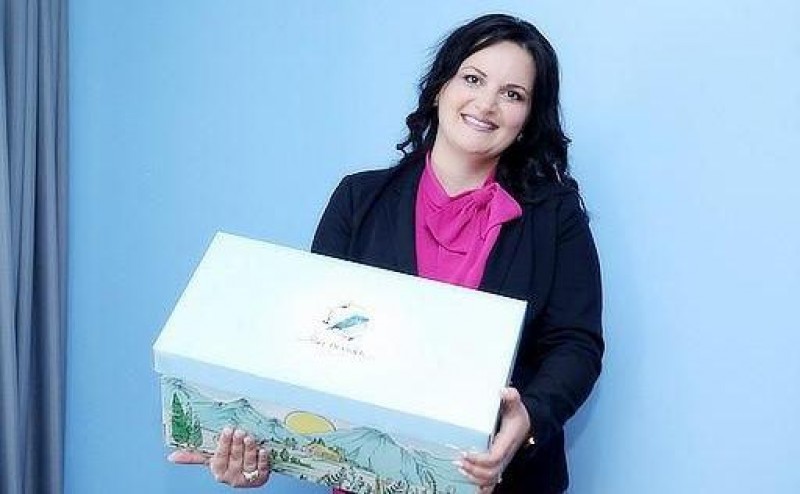Anna Astvatsaturian Turcotte: Help the people of Artsakh to keep them in Armenia

Anna Astvatsaturian Turcotte was in Armenia again to support compatriots forcibly displaced from Artsakh. She met with forcibly displaced people both in the regions and in Yerevan. According to Anna, she wanted to get to know the situation personally, hel
Artsakh and the problems of forcibly displaced compatriots are at the center of the attention of Anna Astvatsaturian Turcotte. In 2012, her book “Nowhere, a Story of Exile” was published. It tells the story of the pogroms that took place in Baku in 1990, which was also witnessed by Anna, a teenage girl at the time. The book has gained wide recognition, and in 2017 it was translated into Russian. At the beginning of 2022, by the initiative of the Newmag publishing house, it was translated into Armenian.
According to Anna Astvatsaturian, if a person has not worked with refugees and has not gone that way, it is difficult to understand the importance of multilateral communication at all levels: social, psychological, and spiritual.
She founded the “Anna Astvatsaturian” charitable foundation and implemented many projects. One of them is called “Love Artsakh” and is aimed at supporting Artsakh mothers and their new-born children. Every child born in Artsakh receives a gift set, which includes everything necessary for the care of the newborn. The collection consists of products produced in Armenia and is given to mothers before leaving the maternity ward. Despite the blockade lasting more than 9 months, the foundation looked for an opportunity to donate the boxes to women giving birth. During this period, 1000 kits, as well as diapers, baby food, and medicines were sent to Artsakh through the Red Cross.
“Only in August and September, we could not deliver gifts, because the Red Cross was forbidden to enter Artsakh. The other day, we delivered 80 packages to the children born in the last months in Artsakh, and then in Armenia. It is not only much-needed help for Artsakh women, but they are a symbol of Artsakh's continued existence, even if the territories are temporarily occupied, it is love, attention, and care for their children. We will continue the project. We also want to support the Artsakh residents who remained in Armenia from the besieged territories after the 2020 war. After all, many still have problems with work and finances. I hope to be able to implement the “Ser Syunik” and “Ser Tavush” projects as well - this is my dream”.
Anna Astvatsaturian is also concerned about the situation of refugees. How can we help them overcome the trauma, how can we help them in the first place, and why should we be sensitive when communicating with them? She tried to give answers to all these questions based on her personal tragic experience and excellent knowledge of refugee psychology.
“The topic of Artsakh is deeply personal for me as well. It is a part of my life. I was 9 years old when the tragedy happened in Sumgait. At this age, I learned about Artsakh from my grandmother's stories and already noticed my parents' concern. When I was 12 years old, I experienced the same as the Armenians of Sumgait. Azerbaijanis tried to break into our apartment, and we barely managed to escape. We barely escaped to Armenia, where we lived in a basement for some time without suitable living conditions. My grandmother suggested writing a diary to avoid deep stress. This diary then became the basis for my book”.
During her visit to Armenia, Turcotte actively cooperated with organizations providing aid to refugees both in Syunik and Yerevan.
“Each family has its own tragedy, its own perception of what happened. Everyone reacts differently to different traumas, and we must learn to listen to everyone and understand their reactions to everything, even the help we provide. I was still 12 years old when the pain settled in my soul forever. Today, this pain is visible in the eyes of the people of Artsakh, especially the adults who are worried about the young generation. They left the graves of their relatives in their homeland, during the recent events, they hastily buried many lost family members in Artsakh and fled, leaving the graves unattended. But they were just waiting for justice and freedom, they loved their home and land, and did everything to live a peaceful life”.
According to Anna, it is necessary to ensure or help them acquire new professions by initiating various programs for their further employment. Not to blame, not to despise those who need our support now.
Read also

At Winterfest 2026, Newmag will present Henrikh Mkhitaryan’s memoir “My Life Always at the Center” (trailer)

Winterfest to feature David Georgyan’s sci-fi action novel Impedance (trailer)

At Winterfest 2026, Newmag will present Marianna Hakobyan’s “Don’t Change the Names” (trailer)

Closing and Award Ceremony of the “Sprout in Armenian – 2025” Competition at Newmag Winterfest

